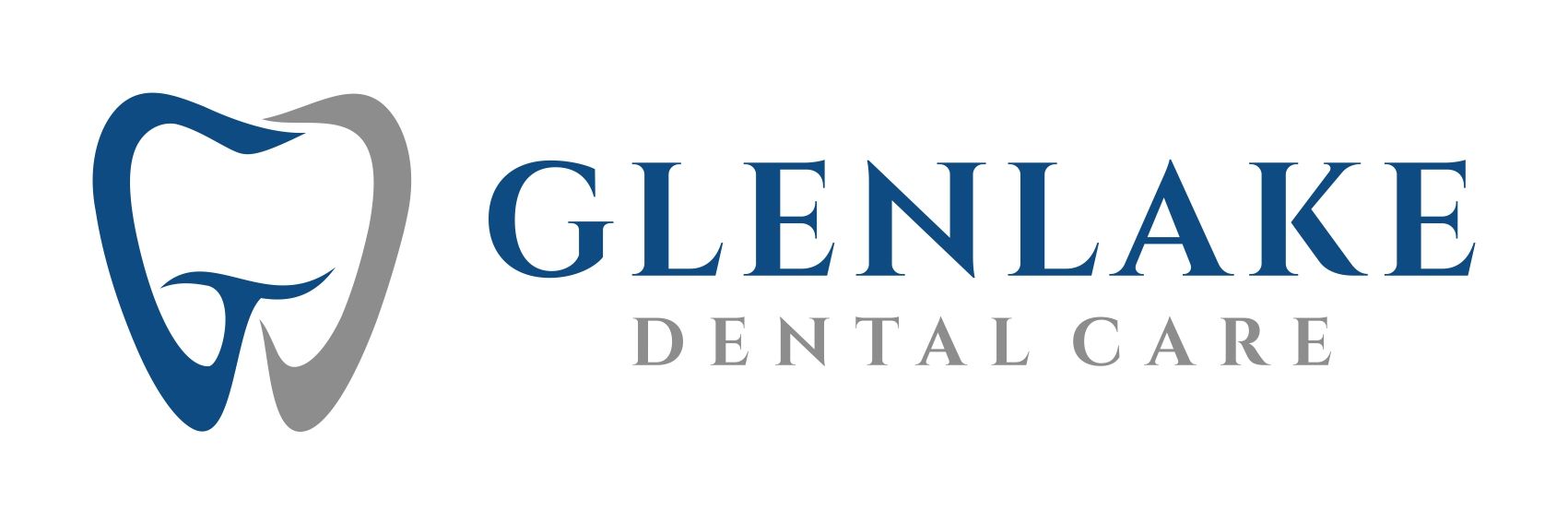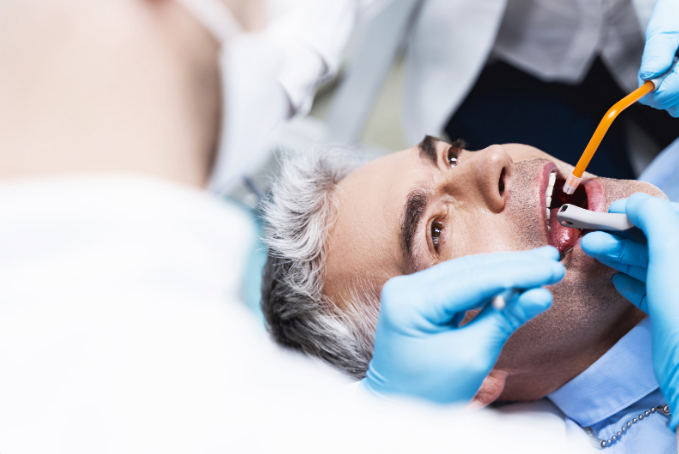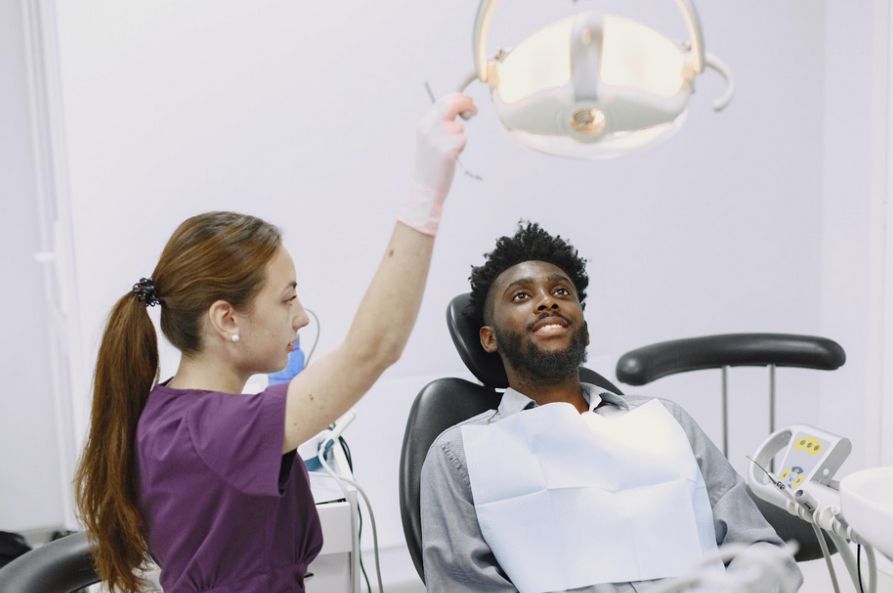When it comes to dental health, being proactive can save you from significant pain and complications down the road. However, there are times when immediate care becomes essential. If you find yourself in Wilmette and suspect you might need urgent dental assistance, recognizing the signs of a dental emergency can be crucial. At Glenlake Dental Care, we understand that dental issues can arise unexpectedly, and knowing when to seek help from an emergency dentist in Wilmette can make all the difference.
1. Severe Toothache
One of the most common indicators that you need to visit an emergency dentist in Wilmette is a severe toothache that persists. Unlike typical discomfort that can be alleviated with over-the-counter pain relievers, a severe toothache often signals an underlying issue, such as an abscess or tooth decay. If you're experiencing intense pain that disrupts your daily activities, it’s essential to seek immediate care.
2. Broken or Cracked Tooth
Accidents happen, and a broken or cracked tooth is a common dental emergency. This situation not only causes immediate pain but can also lead to further complications if left untreated. Fractured teeth can expose the inner pulp to bacteria, increasing the risk of infection. If you’ve suffered a dental injury, contact our team right away to assess the damage and discuss the best course of action.
3. Knocked-Out Tooth
If you find yourself in the unfortunate situation of having a tooth knocked out, time is of the essence. An emergency dentist in Wilmette can often save a tooth if you seek treatment within an hour of the incident. If you still have the tooth, handle it by the crown (the part you see in your mouth) and gently rinse it with water. Avoid scrubbing or removing any tissue. Place the tooth back in its socket if possible, or keep it in a container of milk until you reach our office.
4. Swollen Gums
Swollen or bleeding gums can indicate a serious dental issue, such as gum disease or an abscess. If you notice that your gums are swollen and painful, this isn't just a minor inconvenience. Ignoring these symptoms can lead to more severe infections and even tooth loss. We specializes in treating gum-related problems, ensuring your oral health is restored quickly and effectively.
5. Dental Abscess
A dental abscess is a localized infection that can cause severe pain and swelling in your gums. This condition often arises from untreated tooth decay or gum disease and can lead to more serious health issues if not addressed urgently. Symptoms may include a persistent toothache, swelling in your face, or a fever. If you suspect you have an abscess, don’t hesitate to reach out to our team for immediate assistance.
6. Lost Filling or Crown
If you've lost a filling or crown, it’s essential to address the situation promptly. Not only can this lead to discomfort, but it may also expose the tooth to bacteria and further damage. We can provide you with a temporary solution while planning for a permanent restoration. Don’t wait until the discomfort escalates—seek help as soon as possible.
7. Orthodontic Emergencies
For those undergoing orthodontic treatment, issues such as broken brackets or wires can become painful and lead to complications if not addressed. If you experience any discomfort from your braces or other orthodontic appliances, it’s important to consult with an emergency dentist in Wilmette. Our team can provide the necessary adjustments to ensure your treatment continues smoothly.
8. Persistent Bad Breath
While occasional bad breath may not be a cause for concern, persistent bad breath could signal an underlying dental issue, such as gum disease or infection. If you have tried regular brushing and flossing without improvement, it’s time to consult an emergency dentist. We can diagnose the root cause of your bad breath and provide tailored treatment options to restore your oral health.
Why Choose Glenlake Dental Care?
At Glenlake Dental Care, we prioritize your comfort and health. Our team of dedicated professionals, led by Dr. Eric Lim, is equipped with the latest technology and techniques to handle any dental emergency. We understand that dental emergencies can be stressful, which is why we strive to create a welcoming environment where you can feel at ease.
Whether you are dealing with a severe toothache, a knocked-out tooth, or any of the other signs mentioned, don’t hesitate to reach out to us. Our office is conveniently located for residents of Wilmette and surrounding areas, and we are ready to provide the urgent care you need.
Your oral health is our top priority, and we are here to help you regain your smile and comfort. Don't let a dental emergency disrupt your life—contact us today for prompt and professional care.
Frequently Asked Questions:
1. What should I do if I have a severe toothache?
If you experience a severe toothache that doesn’t subside with over-the-counter pain relief, it's important to contact an emergency dentist in Wilmette immediately. A severe toothache could be a sign of an abscess or tooth decay, which requires professional care to prevent further complications. In the meantime, you can rinse your mouth with warm salt water to alleviate discomfort until you reach the dentist.
2. Can an emergency dentist help with a knocked-out tooth?
Yes, if you have a tooth knocked out, time is critical. An emergency dentist in Wilmette can often save the tooth if treated within an hour. Keep the tooth moist, either by placing it back in its socket or storing it in a container of milk. Seek immediate care to improve the chances of saving the tooth.
3. What are the signs of a dental abscess?
A dental abscess is an infection that typically causes severe tooth pain, swelling in your gums, and sometimes fever. If you notice these symptoms, it’s important to seek emergency care immediately. Ignoring a dental abscess can lead to more serious health complications, including the spread of the infection.
4. How do I know if I need to see an emergency dentist for swollen gums?
Swollen or bleeding gums can be a sign of gum disease or an abscess. If your gums are swollen, painful, or bleeding, don’t wait to seek help. An emergency dentist can evaluate your condition and recommend the right treatment to prevent further complications, such as tooth loss.
5. What should I do if I lose a filling or crown?
If you lose a filling or crown, contact an emergency dentist as soon as possible. A lost filling or crown can leave your tooth vulnerable to bacteria, causing further damage. In many cases, an emergency dentist can provide a temporary solution until a permanent restoration can be made.
6. What qualifies as an orthodontic emergency?
Orthodontic emergencies can occur when braces or other appliances break, causing discomfort or affecting your treatment plan. If you experience a broken bracket or loose wire, it’s important to visit an emergency dentist in Wilmette for an adjustment. Untreated issues can lead to additional complications with your orthodontic treatment.
7. Can bad breath be a sign of a dental emergency?
Persistent bad breath (halitosis) that doesn’t improve with regular brushing and flossing may indicate an underlying issue, such as gum disease or an infection. If you’re concerned about persistent bad breath, it’s a good idea to consult with an emergency dentist, who can identify the root cause and recommend appropriate treatment.
8. How quickly should I visit an emergency dentist for a broken tooth?
If you’ve broken or cracked a tooth, it’s important to seek emergency dental care as soon as possible. A broken tooth can expose the inner pulp to bacteria, increasing the risk of infection. Prompt treatment can help preserve the tooth and prevent further damage or complications.
9. Can Glenlake Dental Care handle all types of dental emergencies?
Yes, at Glenlake Dental Care, we are equipped to handle a wide range of dental emergencies, from severe toothaches and broken teeth to abscesses and orthodontic issues. Our experienced team is committed to providing you with prompt, professional care to relieve your pain and restore your oral health.
10. What should I expect during an emergency dental visit?
During an emergency dental visit, your dentist will assess your condition, relieve any pain, and provide necessary treatment. Depending on the severity of the issue, treatment may involve tooth repair, antibiotics for infection, or a follow-up plan for ongoing care. The goal is to address the immediate problem while preventing further complications.











